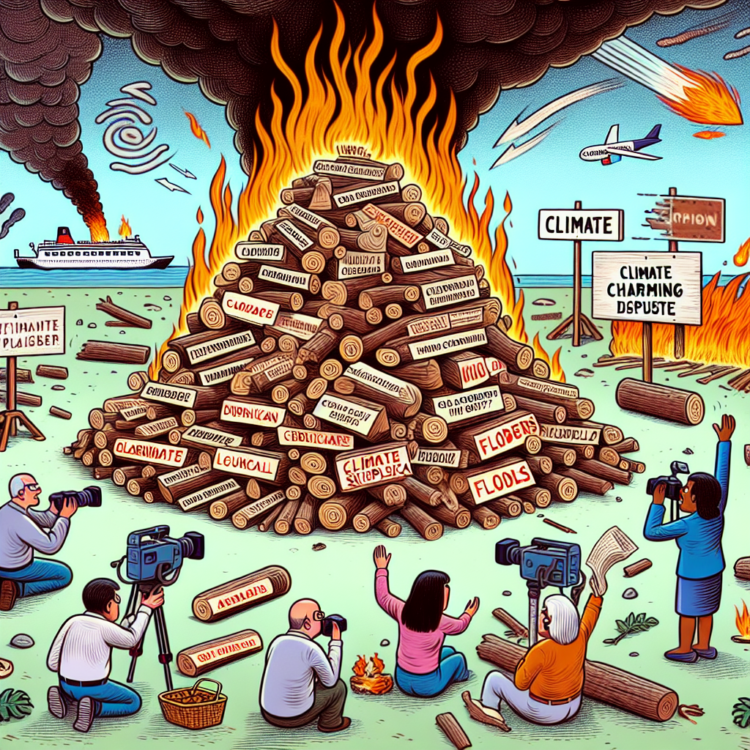The threat of misinformation runs rampant in our digital age, where a single repetition of a climate-sceptical claim seems more true even to the staunchest of climate change endorsers, according to a new study from The Australian National University (ANU).
The threat of misinformation runs rampant in our digital age, where a single repetition of a climate-sceptical claim seems more true even to the staunchest of climate change endorsers, according to a new study from The Australian National University (ANU).
The researchers investigated whether repeated exposure to a climate-sceptic claim from a single source increases the perceived truth of that claim even when the claim runs counter to the receiver’s own climate change beliefs.
ANU PhD student and study lead author, Mary Jiang, said although study participants were more inclined to believe climate scientist-aligned claims over climate sceptic or climate denial claims, the power of repetition carries dangerous weight.
“More than 90 per cent of the study participants endorse climate science. While participants perceived claims aligned with climate scientists to be more truthful than claims aligned with climate scepticism, both types of claims seemed truer when repeated,” she said.
“This increase in perceived truth after repetition occurred even for groups highly concerned about climate change, and when people could later identify that the claim supports the other side.”
According to Ms Jiang, climate-sceptic claims may be presented alongside scientific facts in the name of ‘balanced’ reporting.
“Giving equal exposure to opposing voices makes it sound like the evidence and number of people in favour of each view is also equal. But most, if not all, climate scientists agree on human-induced climate change,” Ms Jiang said.
“While balanced reporting ensures fairness, it does not always paint an accurate or helpful picture and can add fuel to the fire.”
With recent figures suggesting that 89 per cent of people worldwide want more political action on climate change, the researchers warn of the insidious effect of repetition in making climate-sceptic arguments more credible, which in turn, puts everyone at risk of misinformation.
“When we used participants’ own classifications ensuring that they could later categorise a claim as sceptic-aligning, our climate science endorsing participants still considered repeated sceptic-aligning claims to be more truthful,” Ms Jiang said.
“Our study shows that repeat exposure to a claim from a single source is enough to nudge recipients towards acceptance of the repeated claim, even when their attitudes are aligned with climate science and that claim counteracts their beliefs.”
Study co-author, ANU Associate Professor Eryn Newman, said the findings shed light on our vulnerability to the simple repetition of claims.
“A feeling of familiarity is not a reliable cue to truth in digital environments where bots and other mechanisms can lead to a broad spread of false or misleading claims,” she said.
“When you look at the broader literature, being smarter or more critical in the analysis of information does not seem to protect people from shifts in belief because of repetition.
“This speaks to the important role of the ‘health’ of the information environment in which we engage.”
The researchers say it’s not all bad news.
“Study participants rated claims that were aligned with climate scientists as more true when they were repeated than when they were not, implying that it is beneficial to repeat claims that have scientific consensus, even when recipients are already in agreement with it,” Ms Jiang said.
Further research is needed to understand whether repeating counter-attitudinal information has similar effects on other samples, such as climate sceptics, who were underrepresented in the study. The researchers also want to find out whether repeating misleading claims can influence people who hold divided beliefs and attitudes on issues such as immigration, education and healthcare.
“The bottom line is, we should be cautious about repeating false information. Instead, repeat what is true and enhance its familiarity,” Associate Professor Newman said.
The research team also includes experts from the University of Southern California and the University of Melbourne.
The study is published in PLOS.
FOR INTERVIEW:
Mary Jiang
School of Medicine and Psychology
ANU College of Health and Medicine
E: yangxueqing.jiang@anu.edu.au
Associate Professor Eryn Newman
School of Medicine and Psychology
ANU College of Health and Medicine
E: eryn.newman@anu.edu.au
M: +64 21 190 3656 (WhatsApp)
Method of Research
Survey
Subject of Research
People
Article Title
Repetition increases belief in climate-skeptical claims, even for climate science endorsers
Article Publication Date
8-Aug-2024
COI Statement
N/A




